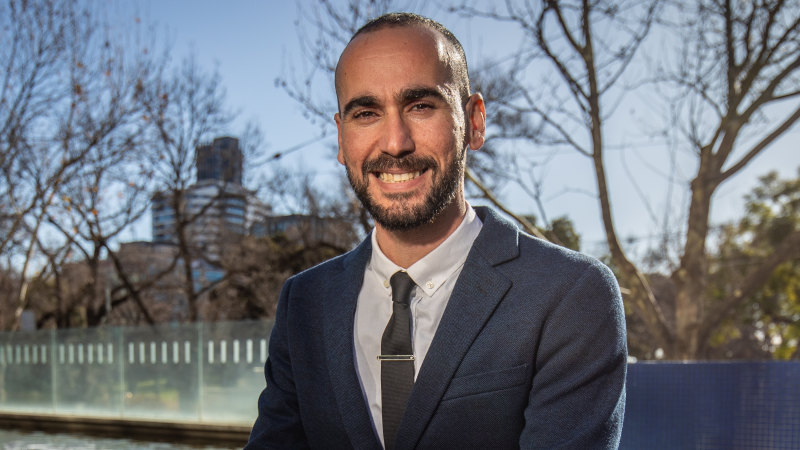
Detention of refugees in hotels was ‘lawful, but lacked humanity’: Judge
July 6, 2023Save articles for later
Add articles to your saved list and come back to them any time.
Using hotels as makeshift detention centres for refugees and asylum seekers was lawful but failed the tests of basic humanity, a Federal Court judge has ruled in a landmark ruling on Thursday.
While finding the Commonwealth government was entitled to designate hotels as temporary detention facilities, Judge Bernard Michael Murphy savaged the 14-month-long detention of Kurdish refugee Mostafa Azimitabar, who brought the case to the Federal Court after being locked up in two Melbourne hotels.
Refugee Mostafa “Moz” Azimitabar outside court.Credit: Scott McNaughton
“I can only wonder at the lack of thought, indeed the lack of care and humanity in detaining a person with psychiatric and psychological problems in a hotel for 14 months,” he said.
“As a matter of ordinary human decency, the applicant should not have been detained for such a period in these conditions, particularly when [he was] suffering from PTSD and a major depressive episode.”
Azimitabar was supported in court by former Australian of the Year Grace Tame, Amnesty International campaigner Sally Rugg, his legal team and other friends, some of whom left the court in tears after the ruling.
During his time detained in Australia, Azimitabar became one of the most outspoken of the refugees brought to Melbourne under the short-lived medevac policy.
Police and protesters outside the Mantra Bell City hotel in Preston at the time it was being used to detain asylum seekers.Credit: Mostafa Azimitabar
Azimitabar was detained at the Mantra Bell City in Preston in Melbourne’s north from November 2019, having been rushed to Australia from Papua New Guinea for emergency psychiatric treatment on the advice of doctors. He had been detained on Papua New Guinea since 2013.
But instead of being taken to a medical facility for treatment, he was locked up with dozens of other men at the Mantra hotel in Preston, in Melbourne’s north, for 13 months before being taken to the Park Hotel in Carlton for a further month.
Hundreds of other refugees and asylum seekers were rushed to the mainland under the medevac policy, from offshore detention in PNG and Nauru, on the advice of doctors. They were kept in hotels that a departmental officer – acting on behalf of the immigration minister – approved as being “alternative places of detention”.
Under the short-lived medevac process introduced by Labor, the Greens and the crossbench – and strongly opposed by the Morrison government – hundreds of people were brought from Nauru and Papua New Guinea to Australia in 2019 – supposedly for emergency medical treatment – on the advice of doctors.
The Morrison government in 2019 moved to designate Mantra Bell City as an alternative place of detention. In December 2020, when the contract for the Mantra expired, a delegate for the acting immigration minister of the day, Alan Tudge, designated the Park Hotel in Carlton as an alternative place of detention.
Azimitabar’s legal team argued the government did not correctly use its power to designate the hotels as detention facilities under the Migration Act, while the Commonwealth argued it was acting within its properly authorised powers to designate the hotels as alternative places of detention (APODs).
Lawyers for the Commonwealth argued the immigration minister, through a delegate, could establish detention sites in a range of buildings, so long as they met the definition of a detention facility.
This month will mark a decade since former prime minister Kevin Rudd resumed indefinite offshore detention for people who seek to come to Australia by boat.
Cut through the noise of federal politics with news, views and expert analysis from Jacqueline Maley. Subscribers can sign up to our weekly Inside Politics newsletter here.
Most Viewed in National
From our partners
Source: Read Full Article




